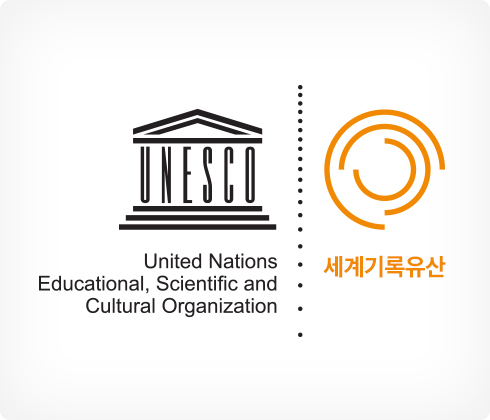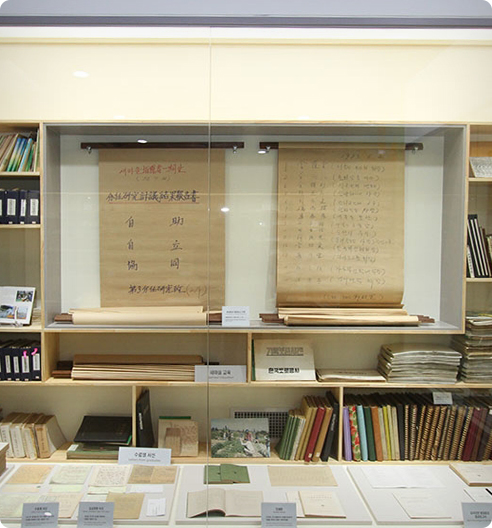UNESCO Memory of the World
Summary
-
Name of Records
Saemaul Undong Records
-
Name in English
The Archives of Saemaul Undong
-
Date of Registration
June 18, 2013
-
Registered Records
22,084 records on Saemaul Undong Movement
-
Ownership
Government of the Republic of Korea, Korea Saemaul Undong Center
-
 Registration ProcessThe 11th Session of the International Advisory Committee of the UNESCO Memory of the World (IAC) held on June 18, 2013 in Gwangju Metropolitan City recommended that the Archives of Saemaul Undong be registered as a memory of the world, which was implemented by UNESCO immediately.
Registration ProcessThe 11th Session of the International Advisory Committee of the UNESCO Memory of the World (IAC) held on June 18, 2013 in Gwangju Metropolitan City recommended that the Archives of Saemaul Undong be registered as a memory of the world, which was implemented by UNESCO immediately. -
 The Archives of Saemaul UndongThe Archives of Saemaul Undong are various forms of records on the Saemaul Undong movement produced by the government, Saemaul Leaders and villagers, the Saemaul Leaders Training Institute and other entities between 1970 and 1979.
The Archives of Saemaul UndongThe Archives of Saemaul Undong are various forms of records on the Saemaul Undong movement produced by the government, Saemaul Leaders and villagers, the Saemaul Leaders Training Institute and other entities between 1970 and 1979. 


Current Status of Saemaul Undong Records
Out of a total of 22,084 records of the Archives of Saemaul Undong registered as UNESCO memory of the world, 7,437 are owned by the Korea Saemaul Undong Center and 14,647 are owned by the National Archives of Korea. The Korea Saemaul Undong Center owns materials relating to Saemaul Undong Training and those produced by civilians at the village level, while the National Archives of Korea owns government-produced materials.
| Record Topics | Quantity | Ownership |
|---|---|---|
| Records produced by the Presidential Secretariat | 288 | National Archives of Korea |
| Records produced by central and local administrative agencies | 14,199 | National Archives of Korea |
| Saemaul Undong movement records produced by villages | 750 | Korea Saemaul Undong Center |
| Success stories and letters by Saemaul Leaders | 4,042 | National Archives of Korea |
| Letters and donation forms from civilians, organizations and enterprises | 160 | Korea Saemaul Undong Center |
| Records produced by the Saemaul Leaders Training Institute | 2,645 | Korea Saemaul Undong Center |
Use of Records
The World Food Programme and the United Nations Economic and Social Commission for Asia and the Pacific (UNESCAP) have adopted the SU movement as a model of poverty eradication for developing nations. The Archives of Saemaul Undong are highly valuable for poverty eradication and rural development as they are vivid records of Korea’s struggle against poverty, improvement of village environments, development of the Saemaul spirit, expansion of social participation by rural women and leadership development for villagers.











